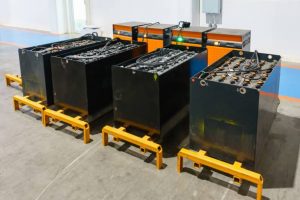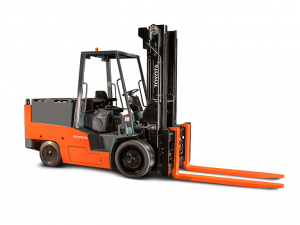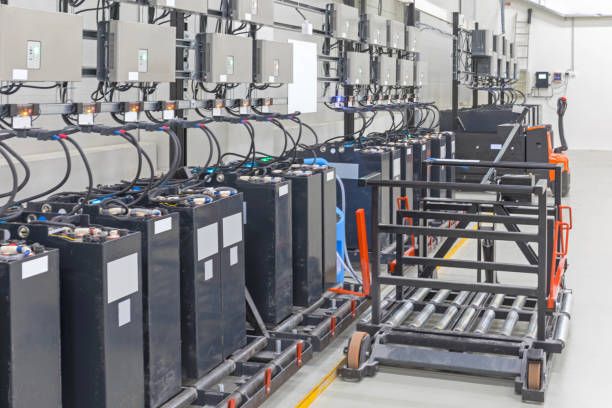What Does the Future Have in Store for Forklift Batteries?
If one thing can be counted on in material handling, it’s that the industry is always evolving, with technological improvements always on the horizon. This is as true of forklift batteries as it is of forklifts. What does the future have in store for forklift batteries? According to industry insiders, there are some major changes to look forward to.

Image courtesy of iStock by Getty Images – Photo by pisittar
The digital age has found its way into every aspect of our lives. In industry, robotics takes center stage, but inexpensive digital technology is being developed for innumerable applications. Many of those applications are centered around data collection. Systems are now available that can collect information about forklift and forklift battery performance. The information can be very useful to management in their attempts to maximize performance and reduce operating costs. As yet, the systems are imperfect, but in the near future, we can expect to see data collection software that can integrate information collected from forklifts, batteries, and charging systems; analyze the data, and make recommendations or even automatically improve performance and extend battery life.
One drawback of battery-powered lift trucks is that they cannot simply be refueled as IC lift trucks can. Changing batteries is time-consuming and batteries aren’t cheap. The need for a working forklift, too, necessitates fast charging, which shortens battery life. A solution that is being rapidly adopted is the new generation of 80-volt lift trucks, which have run times of between 12 and 16 hours on a single charge. There are other advantages to these forklifts, too, that make them more efficient than conventional electric forklifts with 12, 24, or 36-volt batteries.
Lithium batteries are making the news today. Still controversial, critics cite their cost (up to nine times the cost of lead-acid batteries) as their main drawback. On the positive side, lithium batteries offer many advantages that when added together can make them a cost-effective choice in spite of their high initial cost. Some advantages of lithium batteries include:
• Longer run times
• Fast charge capabilities without shortening battery life
• No capacity loss until near time for recharging
• No capacity loss in cold temperatures
• No need to remove the battery from the truck for recharging
• Long-lasting (up to 10,000 cycles)

Image courtesy of Toyota Forklift – Bahrns ToyotaLift is an award-winning Toyota Forklift Dealership
Not quite as efficient as lithium, nickel-cadmium batteries cost around 3 to 5 times as much as standard batteries, but can last up to 8,000 cycles as opposed to a lead battery’s 1,500 cycles. While lithium batteries have zero degradation, nickel-cadmium batteries degrade only about 2% as opposed to a lead battery’s 39% degradation.
As with all new technologies, it will take time before these new developments in battery technology come down in price and into common usage. In the meantime, with proper maintenance, your used forklift and forklift battery can continue to be the most cost-effective solution for your business. For tips on how to get the most out of your batteries, read our earlier blog, How to Boost Used Forklift Battery Performance.

